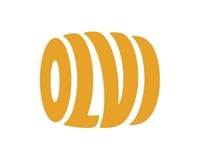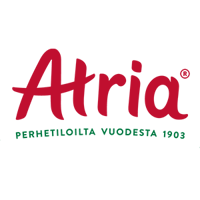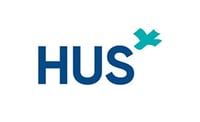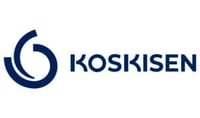
Run complex industrial operations with more
AI-powered SaaS and deep industry expertise that enable companies to operate more profitably, reliably, and sustainably.
Trusted by industrial leaders in 30+ countries











Turn operational data into decisions you can act on
Your industrial operation creates more data than humans can process. We're here to help you turn that complexity into clear insight with our modular offering.
Complete operational visibility
Run your entire value chain from one system. Faster decisions, fewer errors, reliable delivery that protects margins.
Digital transformation without hiring
Get the expertise you need without the cost and risk of hiring scarce IT, data science, and engineering talent.
AI-driven insights
Automated data collection across your value chain, powered by embedded AI. Accurate forecasts, intelligent scheduling, predictive insights.
Enabling industrial execution end-to-end
We'll help you connect every stage — from raw materials and scheduling through manufacturing, delivery, and quality control — into one system with complete visibility.

Powering the world's most critical industries
We innovate by solving real problems alongside our customers
"The electronic weighing certificate improves accuracy and traceability, and is also sustainable, which is important in this industry."
“We chose Pinja as our partner, as they had the experience and long-term proof of carrying out demanding development projects in the healthcare sector.”
"Pinja’s SCM for fuel is a big and central system for us, and it improves the efficiency of reporting in many areas."
“With our actions, we want to ensure that Finland continues to have prosperous forests and forest industries. The forest management solution is one tool in this work and in achieving our related objectives.”
"The positive thing about Pinja is their ability to innovate and their desire to develop systems together over the long term."
Modular solutions for every part of your business
Choose exactly what you need from our suite of industrial software and professional services.
-
All
-
SUPPLY CHAIN
-
PRODUCTION & PROCESSING
-
SALES & DELIVERY
-
DIGITAL PLATFORM
Forestry Operations
Manage the flow from standing trees to delivered logs. Track harvesting, coordinate transportation, and control costs across your supply chain.
Learn more →
Learn moreTerminal Operations
Manage incoming logs in your yard and warehouse. Track what's arriving, where it's stored, measurements, and payments - all in one system.
Learn more →
Learn moreMaterial Flow
Manage and track materials across the entire recycling supply chain to ensure reliable deliveries, efficient logistics, and full compliance with handling regulations.
Learn more →
Learn moreEnergy Operations
Make material processing for fuel faster, cleaner, and more profitable with streamlined intake, handling, and reporting.
Learn more →
Learn moreSolid Wood Operations
Maximize profit from logs to timber. Optimize cutting patterns, track real-time costs, and coordinate production from saw through shipping.
Learn more →
Learn moreProduction Operations
Optimise multi-stage production to deliver reliably and cost-effectively. AI and human planning adapt instantly to changes and prevent costly surprises.
Learn more →
Learn moreMaintenance Operations
Schedule predictive maintenance that prevents production interruptions. Move from reactive repairs to planned maintenance based on actual equipment data.
Learn more →
Learn moreReal-Time Monitoring
Get live visibility into your entire operation with dashboards and alerts. Monitor production, track KPIs, and catch issues before they become problems.
Learn more →
Learn moreSales and Delivery Operations
Manage wood-product manufacturing from quote to finished products. Coordinate materials, production schedules, and delivery for every order.
Learn more →
Learn moreDigital Commerce
Grow your business with an online store built for high volume that always delivers a flawless customer experience.
Learn more →
Learn moreSales Planning
Improve forecasting and synchronise production with actual demand to eliminate waste and strengthen delivery reliability.
Learn more →
Learn moreDigital Operations and Platform
We take care of IT infrastructure, integrations, and custom software development. Free up your resources to focus on your operation.
Learn more →
Learn moreData & Intelligence
Our analysts transform your raw data into actionable reports. Turn your data into insights for optimisation, cost control, and growth.
Learn more →
Learn more
AI built in
Pinja AI Agents support your planning, forecasting, diagnostics, and daily decisions — handling complexity beyond human capability.

All solutions run on the Pinja Fusion platform.
Your data flows seamlessly, your AI agents work across operations, and you have one partner accountable for everything.
-
Unified operational data
-
Modular solutions with shared components
-
Embedded AI for planning, forecasting, and diagnostics
-
Secure, scalable cloud foundation
Get the strategic expertise and skills you need — Work with Pinja to support your internal tech team

Your long-term partner for data-driven industrial success
Pinja delivers SaaS and professional services for supply chain, production, and sustainability. With 30+ years of expertise, we serve industrial leaders in 30+ countries.



Why leading companies choose Pinja
Deep industry knowledge
Our experts come from your industries and have embedded decades of knowledge into our solutions — so they work the way you work.
End-to-end execution
We connect your entire value chain with unified data, industrial AI models, and one accountable partner—from raw material sourcing to final delivery.
Sustainable by design
We help you reduce waste, use resources efficiently, and achieve full traceability — turning sustainability into competitive advantage.
Customer-driven innovation
We innovate alongside you using real production data and AI to improve planning, prevent quality issues, and anticipate needs.

Make sustainability work for your business
We help you turn regulatory compliance into business advantage. Reduce waste, improve resource efficiency, and achieve full traceability. As a responsible partner committed to our own sustainability practices, we're building a sustainable world byte by byte.
The impact:
10-50%
Reduced material waste through AI optimization
100%
Green energy through supply chain automation
30%
Less stock and storage space with simulation and AI
20-50%
Improved utilisation rate on the production line
Calling all data lovers
We ♥ data.
At Pinja, you'll join almost 500 specialists who are passionate about turning industrial data into real impact — solving meaningful problems and enabling more sustainable decisions for our customers.
.png?width=300&name=data-lovers-logo-green-pink-gray-web-(1).png)

Ready to transform your operations?
Book time with one of our experts for a brief, high-impact discussion on improving your industrial operations.

.webp?width=300&name=engineer-using-tablet-check-control-automation-robot-arms-machine%20(1).webp)







